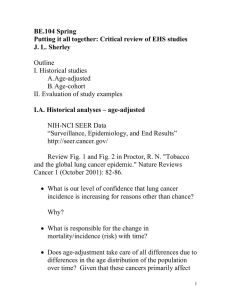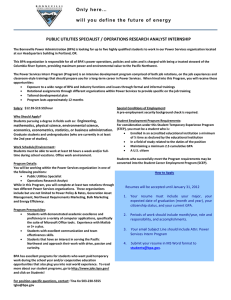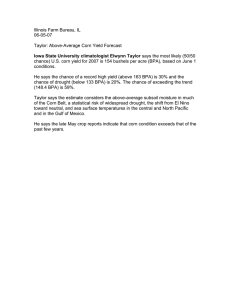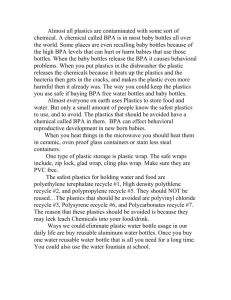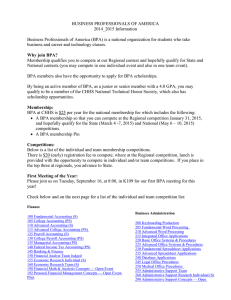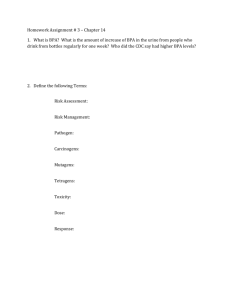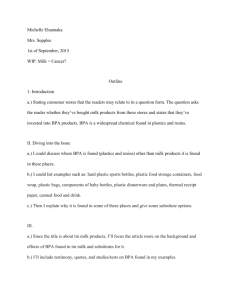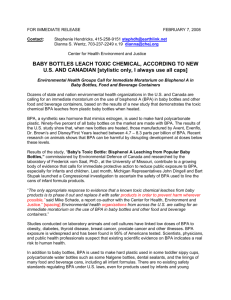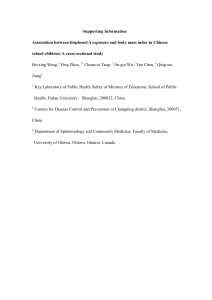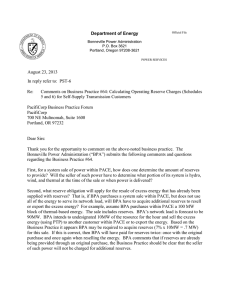New Findings Add to Health Concerns About a Chemical in Plastics
advertisement
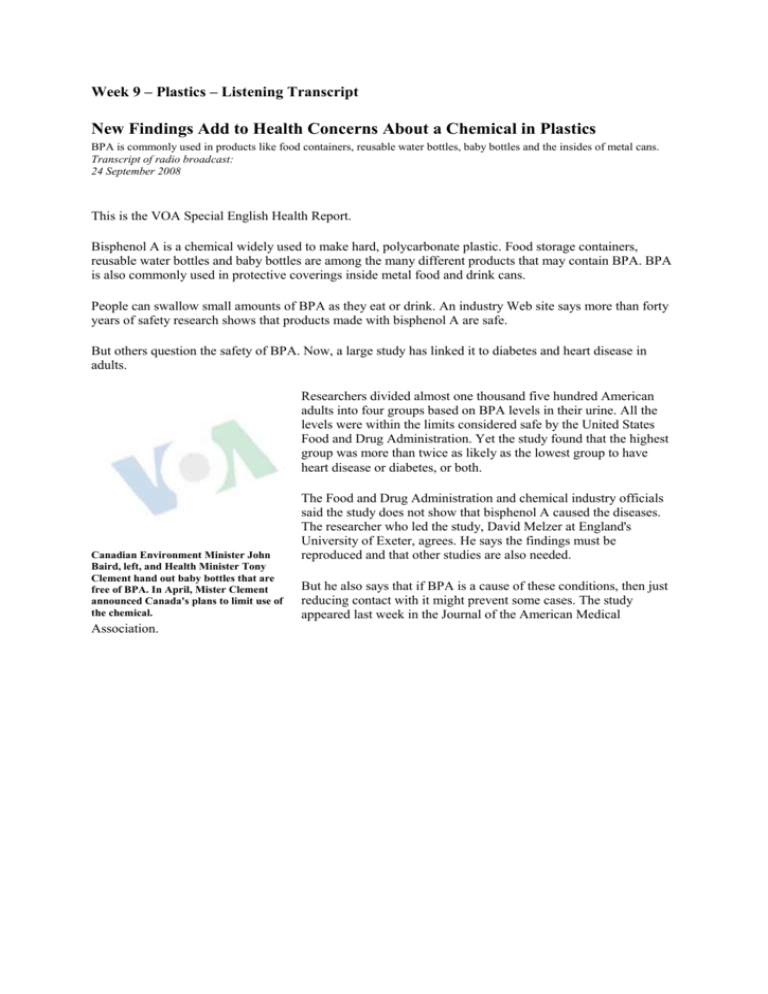
Week 9 – Plastics – Listening Transcript New Findings Add to Health Concerns About a Chemical in Plastics BPA is commonly used in products like food containers, reusable water bottles, baby bottles and the insides of metal cans. Transcript of radio broadcast: 24 September 2008 This is the VOA Special English Health Report. Bisphenol A is a chemical widely used to make hard, polycarbonate plastic. Food storage containers, reusable water bottles and baby bottles are among the many different products that may contain BPA. BPA is also commonly used in protective coverings inside metal food and drink cans. People can swallow small amounts of BPA as they eat or drink. An industry Web site says more than forty years of safety research shows that products made with bisphenol A are safe. But others question the safety of BPA. Now, a large study has linked it to diabetes and heart disease in adults. Researchers divided almost one thousand five hundred American adults into four groups based on BPA levels in their urine. All the levels were within the limits considered safe by the United States Food and Drug Administration. Yet the study found that the highest group was more than twice as likely as the lowest group to have heart disease or diabetes, or both. Canadian Environment Minister John Baird, left, and Health Minister Tony Clement hand out baby bottles that are free of BPA. In April, Mister Clement announced Canada's plans to limit use of the chemical. Association. The Food and Drug Administration and chemical industry officials said the study does not show that bisphenol A caused the diseases. The researcher who led the study, David Melzer at England's University of Exeter, agrees. He says the findings must be reproduced and that other studies are also needed. But he also says that if BPA is a cause of these conditions, then just reducing contact with it might prevent some cases. The study appeared last week in the Journal of the American Medical
